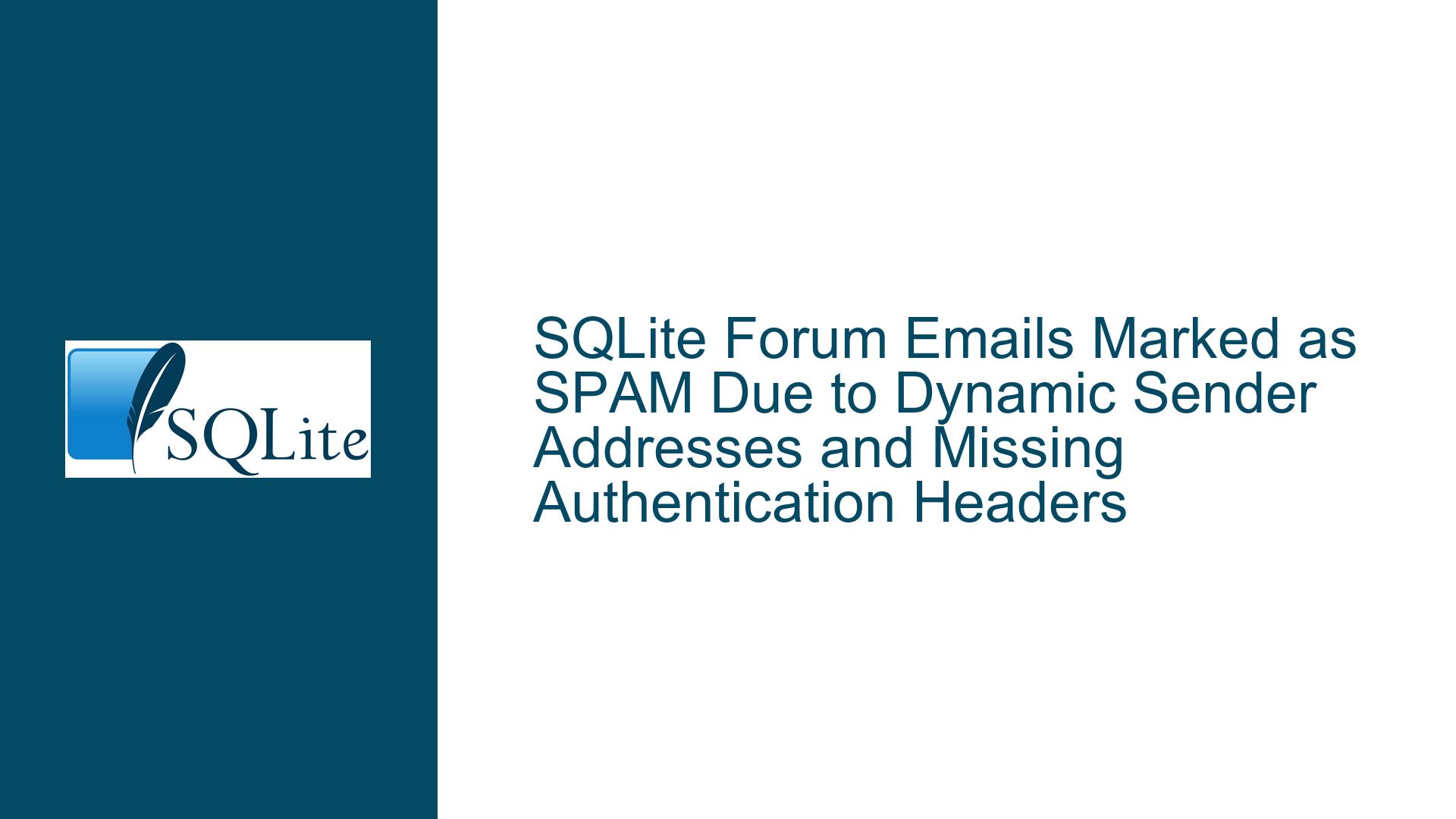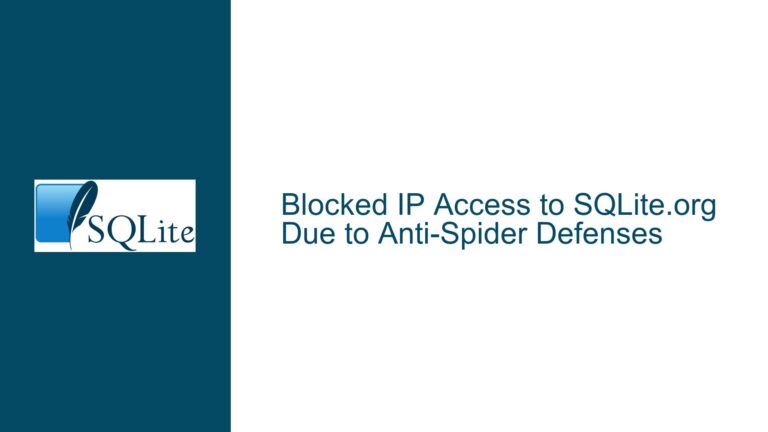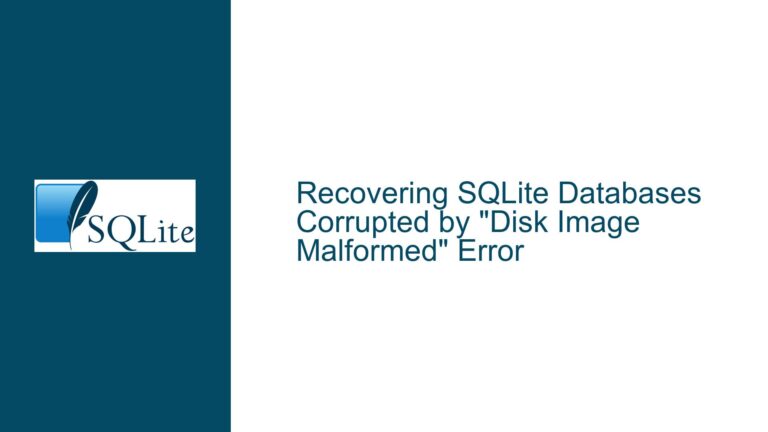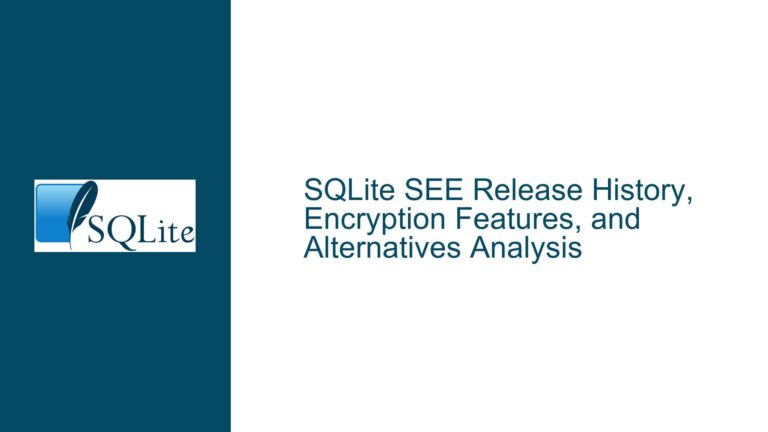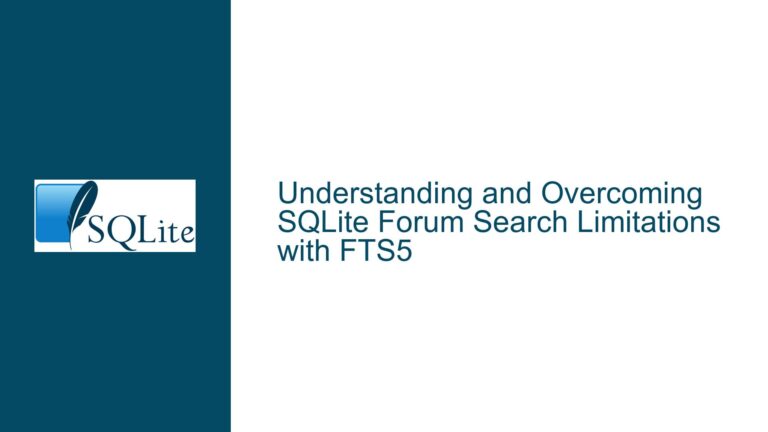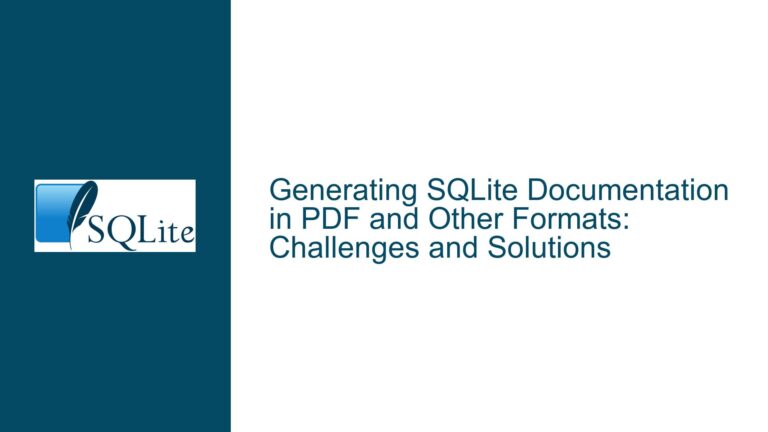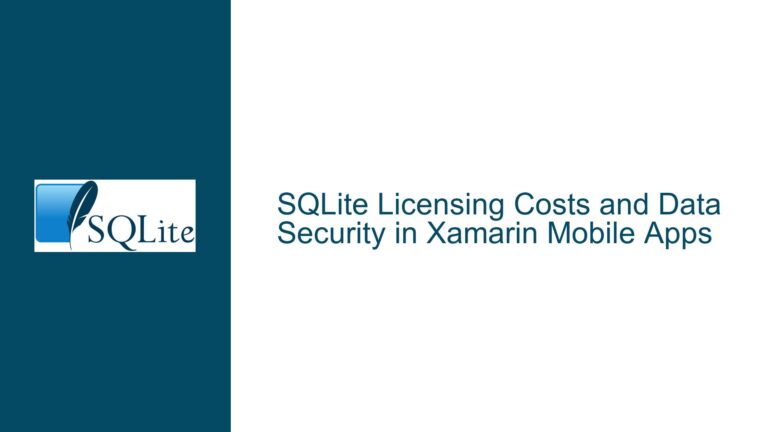SQLite Forum Emails Marked as SPAM Due to Dynamic Sender Addresses and Missing Authentication Headers
Dynamic Sender Addresses and Email Authentication in SQLite Forum Emails
The SQLite Forum email system is designed to protect user privacy by generating unique sender addresses for each participant. These addresses follow the format [email protected], where XXXXXXXXXXXXX is a unique hexadecimal string. While this approach ensures privacy, it introduces challenges for email clients like Outlook.com, which may flag these emails as SPAM due to the dynamic nature of the sender addresses. Additionally, the absence of email authentication mechanisms such as DKIM (DomainKeys Identified Mail) and SPF (Sender Policy Framework) further exacerbates the issue, as many email providers downgrade or block emails lacking these security features.
The problem is compounded by the fact that email clients often rely on consistent sender addresses and robust authentication headers to determine the legitimacy of incoming emails. Without these, emails from the SQLite Forum are more likely to be misclassified as SPAM. This issue is not unique to SQLite but is a common challenge faced by systems that prioritize user privacy over email deliverability.
Interrupted Email Deliverability Due to Missing Sender Headers and Authentication
The core issue lies in the interaction between the SQLite Forum’s email system and modern email clients’ SPAM filtering mechanisms. Email clients like Outlook.com use a combination of sender reputation, email headers, and authentication protocols to assess the legitimacy of incoming emails. The SQLite Forum’s use of dynamic sender addresses disrupts the sender reputation model, as each email appears to originate from a different address. This inconsistency triggers SPAM filters, which are designed to detect and block suspicious or unsolicited emails.
Furthermore, the absence of DKIM and SPF records means that email clients cannot verify the authenticity of the emails. DKIM allows the recipient server to verify that the email was indeed sent by the claimed domain and has not been tampered with during transit. SPF, on the other hand, specifies which mail servers are authorized to send emails on behalf of the domain. Without these authentication mechanisms, emails from the SQLite Forum are more likely to be flagged as SPAM, regardless of their content or legitimacy.
The lack of a consistent Sender header in the email also contributes to the problem. In mailing lists, the Sender header typically indicates the list’s address, allowing email clients to apply rules or filters based on this information. The SQLite Forum emails do not include this header, making it difficult for users to create effective filters or rules to manage these emails.
Implementing Email Authentication and Consistent Sender Headers for Improved Deliverability
To address these issues, several steps can be taken to improve the deliverability of SQLite Forum emails and reduce the likelihood of them being marked as SPAM. These steps involve implementing email authentication protocols, modifying email headers, and providing guidance to users on configuring their email clients.
1. Implementing DKIM and SPF Authentication
The first and most critical step is to implement DKIM and SPF authentication for emails sent from the SQLite Forum. DKIM involves adding a digital signature to the email headers, which can be verified by the recipient’s email server. This signature ensures that the email has not been altered during transit and confirms that it was sent by an authorized server. SPF, on the other hand, involves publishing a DNS record that lists the IP addresses of servers authorized to send emails on behalf of the domain.
By implementing these protocols, the SQLite Forum can significantly improve the legitimacy of its emails in the eyes of email providers. This, in turn, reduces the likelihood of emails being flagged as SPAM. The following table outlines the key differences between DKIM and SPF:
| Feature | DKIM | SPF |
|---|---|---|
| Purpose | Verifies email integrity and authenticity | Specifies authorized sending servers |
| Implementation | Digital signature in email headers | DNS record listing authorized IPs |
| Verification Process | Recipient server verifies signature | Recipient server checks DNS record |
| Impact on Deliverability | High | High |
2. Adding a Consistent Sender Header
Including a consistent Sender header in SQLite Forum emails can help email clients identify and categorize these emails more effectively. The Sender header should indicate the forum’s address, such as [email protected]. This allows users to create rules or filters based on this header, ensuring that emails are delivered to the appropriate folder and not marked as SPAM.
For example, the Sender header could be structured as follows:
Sender: SQLite Forum <[email protected]>
This header provides a consistent identifier for the email client to use when applying filters or rules.
3. Providing User Guidance for Email Client Configuration
While implementing technical solutions is essential, providing users with clear guidance on configuring their email clients can also help mitigate the issue. For example, users of Outlook.com can be instructed to add the [email protected] address to their address book or create a rule that marks emails with the subject line starting with [sqlite-forum] as not SPAM.
Additionally, users can be advised to check their SPAM folder regularly and mark SQLite Forum emails as "Not SPAM" to improve the sender’s reputation over time. This proactive approach can help train the email client’s filtering algorithm to recognize these emails as legitimate.
4. Exploring Alternative Email Addressing Conventions
Another potential solution is to explore alternative email addressing conventions that balance privacy and deliverability. For example, using a plus addressing convention ([email protected]) could provide a consistent base address while still maintaining unique identifiers for each user. This approach is supported by many email providers and can help reduce the likelihood of emails being flagged as SPAM.
The plus addressing convention works by appending a unique identifier after a plus sign in the local part of the email address. For example:
[email protected]
This format allows email clients to recognize the base address ([email protected]) while still preserving the unique identifier for each user.
5. Monitoring and Iterating on Email Deliverability
Finally, it is crucial to monitor the impact of these changes on email deliverability and iterate as needed. This involves tracking metrics such as email open rates, SPAM complaints, and bounce rates to assess the effectiveness of the implemented solutions. If issues persist, further adjustments may be necessary, such as refining the email headers or exploring additional authentication mechanisms like DMARC (Domain-based Message Authentication, Reporting, and Conformance).
By taking a comprehensive approach that combines technical solutions with user guidance, the SQLite Forum can significantly improve the deliverability of its emails and ensure that users receive important notifications without interruption. This not only enhances the user experience but also strengthens the overall reliability of the forum’s communication system.
